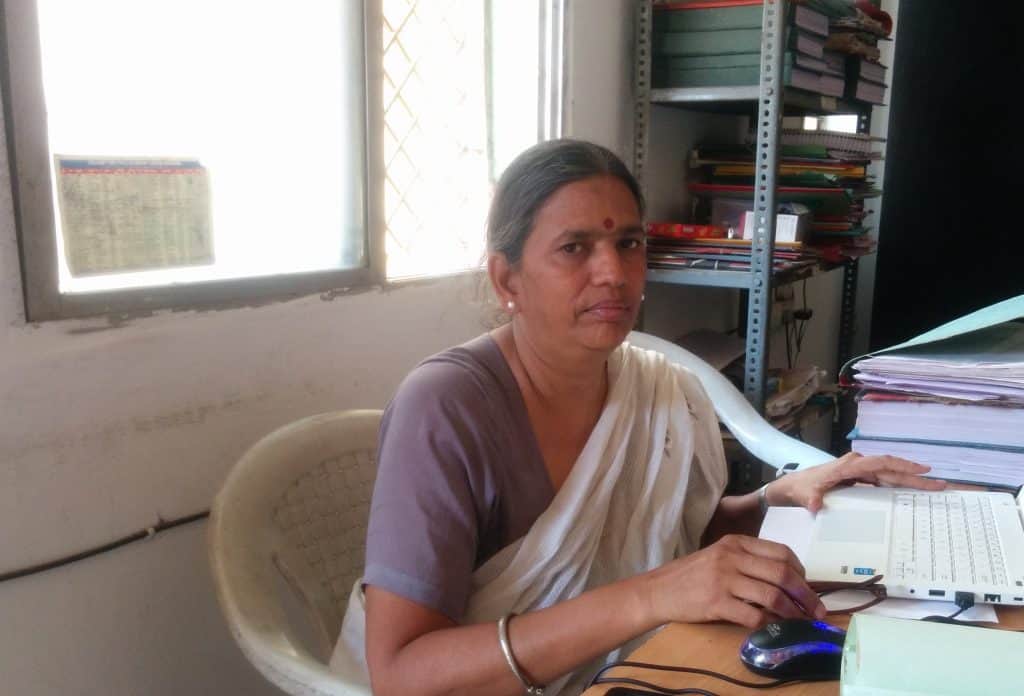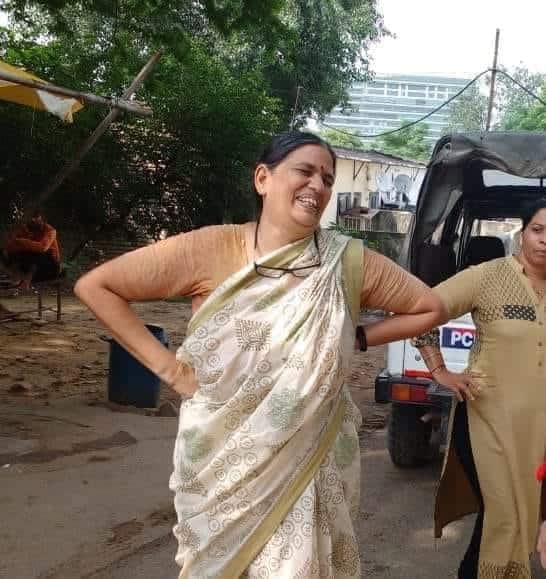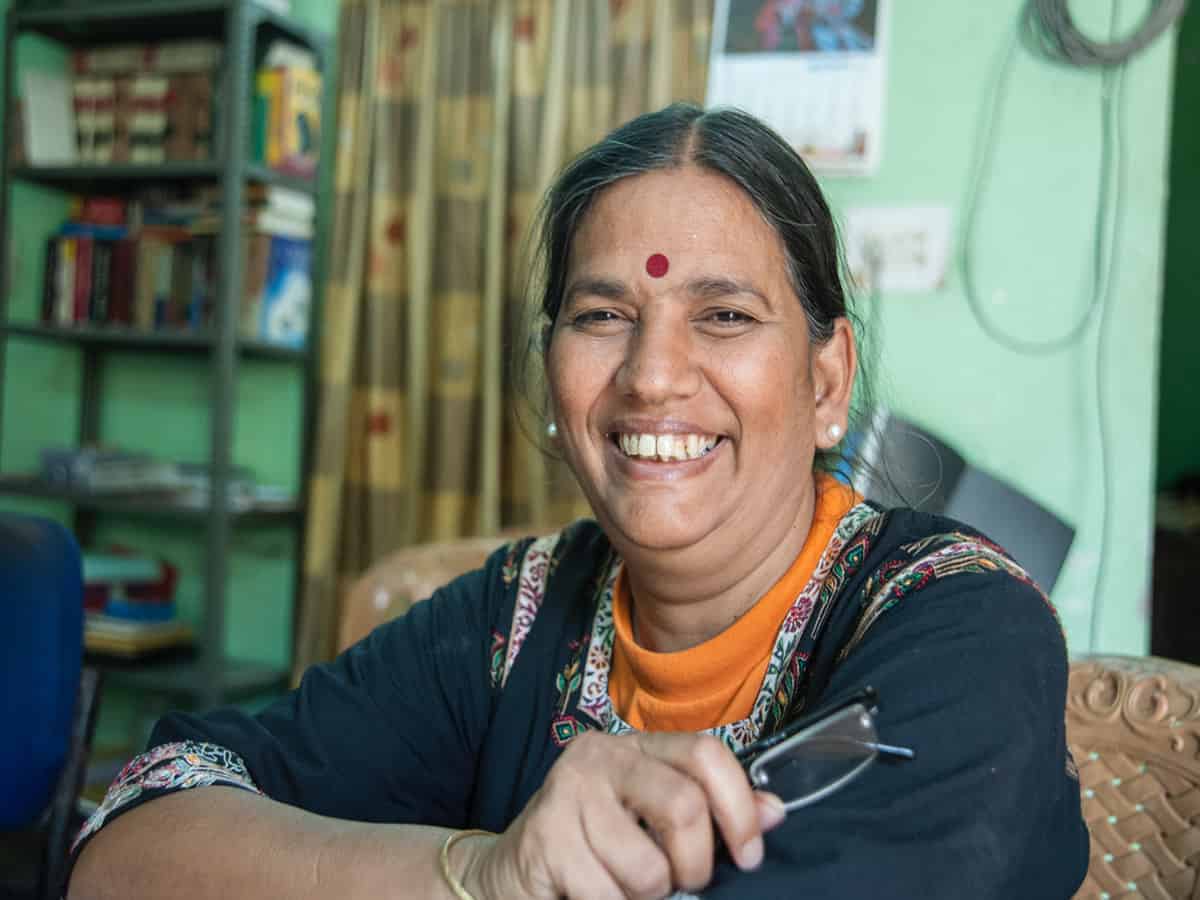Popularly called the ‘people’s lawyer’, Activist and Professor Sudha Bharadwaj spent her third consecutive birthday in jail. Declining health and serious ailments are her companions in the prison, as several bail petitions have been repeatedly squashed by the courts. Today, she remains incarcerated in Byculla Women’s Prison without a trial.
“If you try to be safe and be in the middle, you will never succeed. I think physically, those of us who took the plunge learn to swim. Many people did that, we weren’t the only ones.”
Who is Sudha Bharadwaj?
Born in the United States to Indian economist parents, Sudha Bharadwaj renounced her US citizenship, earned a degree in Mathematics from Indian Institute of Technology, Kanpur to become a dedicated civil rights activist and a trade union lawyer and diligently worked for the poor and marginalized. Professor Bharadwaj focused on protecting the rights of adivasi (indigenous) people in the state of Chattisgarh.
Apart from valiantly fighting for the land and forest rights, she has acted as legal representative in several cases of extrajudicial executions of adivasis and has represented them before the National Human Rights Commission of India. She also serves as the General Secretary of the Chattisgarh People’s Union for Civil Liberties.
Furthermore, she was a visiting professor at various national law universities.

Sudha Bharadwaj’s arrest
On 28 August 2018, in a nation-wide operation, five human rights activists — Sudha Bharadwaj, Vernon Gonsalves, Varavara Rao, Gautam Navlakha and Arun Ferreira — were simultaneously arrested by the police from different parts of the country, in relation to the contentious Elgar Parishad- Koregaon Bhima case.
The arrests were based on evidence of their “involvement in inciting violence” on December 31, 2017. The violence in question occurred during Elgar Parishad, a Dalit commemoration of the anniversary of a battle the Dalits had won 200 years previously against the Peshwas. The commemoration had turned violent at Bhima Koregaon (near Pune) on January 1, 2018. So far, 16 people were arrested in the case. Most of the accused were neither named in the FIR over the violence nor present during the 2017 event.
Sudha Bhardwaj was arrested at her residence in Haryana, when it was raided by the police. She was charged under several sections of the Unlawful Activities (Prevention) Act, along with Sections 153 A, 505, 117 and 120 of the Indian Penal Code.

During the raid, her laptop, mobile phone, pen drives and a blank diary were seized. Sudha Bhardwaj has expressed concern that her diary might be tampered with. The arrest documents presented to her were in Marathi language, which she does not understand, failing to comply with Section 165 and 166 of the Code of Criminal Procedure, 1973.
Before her arrest in August 2018, a slanderous campaign by Republic TV in July, 2018 accused her of having Maoist links. The publicity-shy activist found in the midst of a messy and noisy allegation that the trade unionist had written a letter identifying herself as “Comrade Advocate Sudha Bharadwaj” to a Maoist called “Comrade Prakash,” stating that a “Kashmir like situation” has to be created. The Republic TV further accused the trade union leader of having received money from the Maoists.
Bharadwaj told The Wire “I am also said to have confirmed that various advocates, some of whom I know as excellent human rights lawyers and others whom I do not know at all, had some sort of Maoist link.”
Watch her whole interview here.
In various public statements released after her arrest, several academicians, activists and students have testified her unwavering commitment to the transformative vision of the Indian Constitution and her advocacy of using constitutional methods in addressing injustices and not violence. One wonders, how can a professor who owes unwavering allegiance to the supreme law of this land and Gandhinian non-violence can be accused of toppling the government using violent and questionable means.
Failed bail petitions
Several bail petitions — interim and health-based — have been continuously denied by the Bombay High court and the Supreme Court. On 14 February 2020, an order was passed to move the investigation on the Bhima Koregaon case to the National Investigation Agency.
Smita Gupta, a Delhi-based economist, and writer wrote for The Wire: “And because they don’t have any real evidence against her that can stand up in a trial, they are converting the process itself into punishment and denying her bail despite her long incarceration and poor health.”



